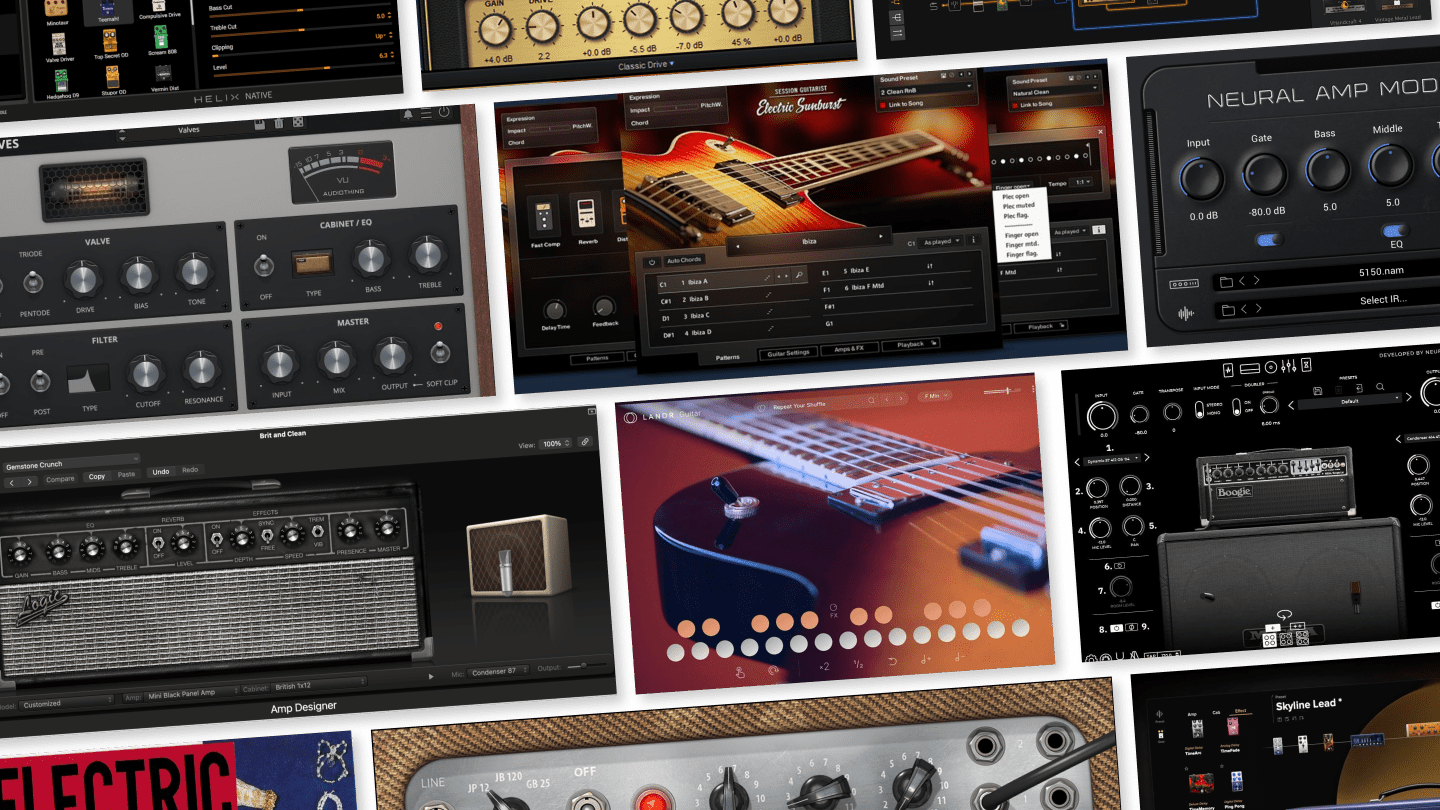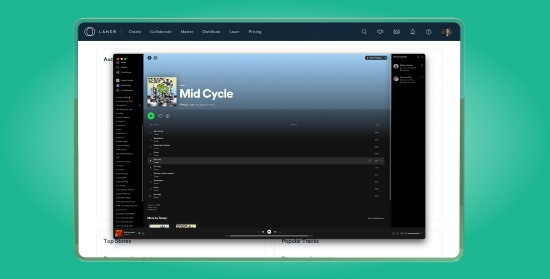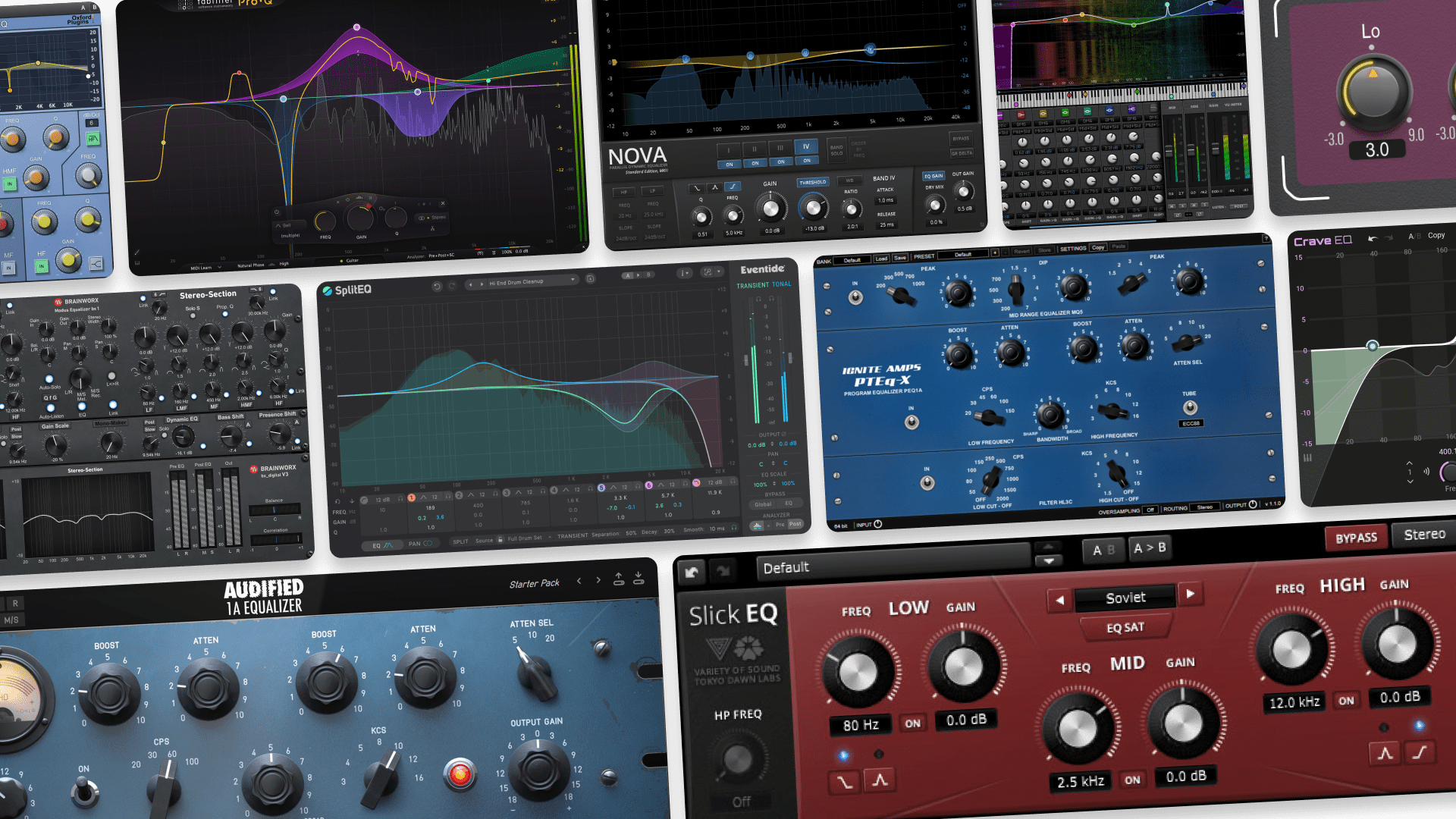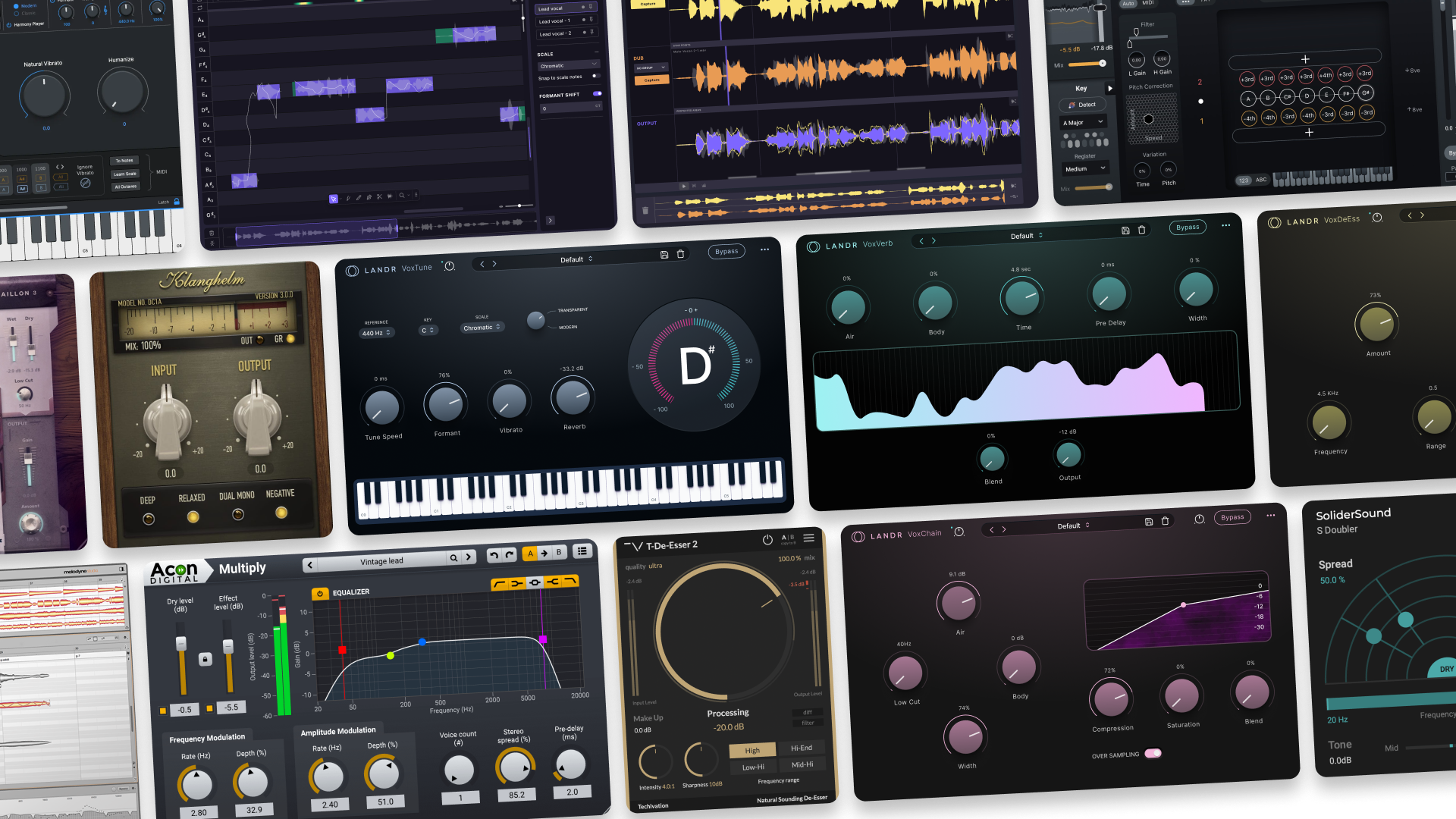
Careers in Music: Which Music Job is Right for You?

Careers in music have an alluring quality. It makes sense, so many people are passionate about music.
But the music industry is known for being a competitive job market and it can be difficult to know what kinds of opportunities are available.
The good news is that no matter what your skills are, you can find a role that works for you in the music world.
Whether you want to be an artist, work on the business end, or be an educator there’s a growing number of music industry jobs that should be a good fit for your skills.
Careers in music generally fall into 5 categories:
- Performing and creating
- Recording and producing
- Music business jobs
- Music media jobs
- Music education and music therapy
Of course, your skillset doesn’t have to limit you to any one category.
In fact, you probably have skills that apply to every category. Plus you can always learn!
Here’s what you need to know if you are wondering how to start your career in music.
1. Careers in music performance and creation
It’s easy to get caught up idolizing the careers of famous artists and music celebrities when thinking about what a performance career looks like.
It’s definitely not impossible for you to find success with your music, but you need to remember that show business takes a lot of hard work.
It’s definitely not impossible for you to find success with your music, but you need to remember that show business takes a lot of hard work.
It can take years to get good at your craft, make connections with the industry, and build an audience.
That being said, there are so many ways to enter a career as a musical artist whether you want to create, perform, or do both.
Plus with the help of the internet, finding a niche audience for your work and promoting your music is not as hard as it once was.
Here are a few job descriptions for music performance and creation.
What is a songwriter?
A songwriter is someone who writes songs for themselves, for other artists, or for businesses. Usually, this person possesses lyric writing skills and is capable of matching words, ideas, emotions, and concepts to rhythms, chords, and melodies. Most songwriters have strong skills with a specific instrument, but having a general knowledge of several instruments is much more beneficial.
Usually, songwriters get paid from royalties earned by the songs they write. These payments are calculated based on radio plays, streams, and any commercial uses.
The royalty system can be a little bit complicated, luckily we’ve discussed it at length in other posts.
What is a session musician?
Session musicians sometimes called studio musicians, are paid to play their instrument on a case by case (or session by session) basis. These musicians may be hired to perform in a live environment, or record in a studio. A professional session musician must possess a high degree of musical prowess and will often hold a Bachelor of Music degree or higher.
These musicians most commonly work under a freelance model, they accept gigs and are paid by the hour or per session.
A session musician’s rate will depend on their past work and degree of skill.
There are many gigs that a session musician might take. Anything from recording in a studio, subbing in for an orchestra member, touring on a cruise ship, performing at a wedding, to playing in a mariachi band counts as session work.
The main point is being known for excellence in your musical field and building the relationships and contacts you need to get work.

What is a composer?
A composer is someone who writes sheet music for orchestral arrangements. Modern composers find most of their work writing scores for films and commissioned pieces for orchestras.
With the added degree of complexity that comes with arranging for larger ensembles, it would be rare to find a composer that hasn’t obtained a master’s level degree in music at the very least.
2. Careers in recording and music production
The recording industry is huge.
Consider that behind every song you hear lies a team of recording engineers, producers, studio hands, mix engineers, and more. That’s a lot of work!
Behind every song you hear lies a team of recording engineers, producers, studio hands, mix engineers, and more.
Recording and production are both art forms that require dedication, trial and error, learning, the ability to work with artists, and aptitude for technology.
Here’s a few job descriptions you might consider if you choose recording or production as a career path.
What is a Recording Engineer?
Recording engineers work with artists in the recording studio. They know how to use recording equipment and are experts in using the proper techniques required to capture and record high-quality sound.
Finding a job on the recording side of the music business usually requires some technical skills that you can pick up at college or university.
However, I know quite a few recording engineers who are self-taught and still are very good at their craft.
Many recording engineers get their first experience recording by building a portfolio with their own music projects, or by doing free or discounted work for local projects.
To become a full-time professional engineer you’ll most likely start by finding lower-level work in a recording studio or eventually build your own recording studio once you have enough experience and clients.

What is a Music Producer?
Music producers manage the recording, writing, editing, mixing, of an artist’s track or album.
While many musical artists self-produce without the help of a producer, some artists enlist the help of a music producer to benefit from their technical and artistic knowledge. In general, music producers are there to guide an artist through the process of writing and creating a track or album.
To become a music producer you need to build your reputation as someone who is capable of creating great-sounding records.
Usually, producers get their start working on their own projects to build their portfolio. Once they have some recording experience they may begin working on other artists’ projects.
To be a successful music producer you’ll need to wear many hats in the studio.
To be a successful music producer you’ll need to wear many hats in the studio.
It’s not uncommon to help with everything from recording engineering, hiring session players, coaching the artist, liaising with the record label, and even writing and providing artistic direction to arrangements.
3. Careers in Music Business
Behind the music you listen to every day lies a massive industry.
Even in the digital distribution era artists still need a team of people to help them with releasing music, promoting it, and organizing the many moving parts that come with launching an album.
The are many roles within the music business. Generally, these roles fall into two categories– artist services and label services.
Label service jobs usually serve the interest of a record label and will include its executive, A&R, design, legal, and finance departments. This person is always employed by the record label.
Artist service jobs serve the interest of the artist and are hired by the artist. Typically these roles include artist manager, music marketing, tour manager, booking agent, publishing, PR, and music lawyers.
What is A&R?
A&R stands for artists and repertoire. A&R representatives work for record labels to find and bring on new talent.
A&R isn’t quite what isn’t used to be in the golden age of the recording industry.
It used to be much more common to see A&R executives acting as talent scouts and scouring local scenes to find that one special talent.
Today, A&R people spend most of their time visiting industry music festivals, where up-and-coming bands play to get their names in front of the music industry.
If they find an artist that is a good fit for the label they represent they will work with all the stakeholders from the label and the band to walk through the signing, recording and releasing process.
To be successful, A&R people must be good at networking and meeting people, especially at industry music festivals.
They also must have a good eye for talent, a strong understanding of how the music business works, and know what kind of talent the label they represent is looking for.
What is Artist Management?
Artist managers act as a behind-the-scenes liaison to the music industry for the artists they represent. Managers work hard to build their connections throughout the industry and will know how to navigate label signings, tour management, promotion, and more.
Whether a project releases independently or works with a record label, having a manager is very useful.
A good manager should be able to offer the projects they represent the opportunity to get on a bigger platform.
A good manager should be able to offer the projects they represent the opportunity to get on a bigger platform.
Most often, managers get their start working for record labels or as assistants at artist management organizations.
If you choose this career path, be prepared to answer a lot of emails. You will benefit most from having a lot of connections in the industry and being known for working with great artists.
What Does a Publicist do?
Music publicists are experts at connecting artists with the music media. Professional publicists help artists create the right messaging around an artistic project before releasing a communication.
They are also responsible for creating opportunities for media appropriate exposure such as interviews, reviews, and other coverage.
It takes a long time to build the relationships that a publicist needs to be successful. Many publicists get their start working at large music PR agencies.
What do Music Publishers do?
Music publishers ensure that artists get paid whenever their music is used in media, movies, commercials, radio, video games, and any other form of broadcasting.
Publishers also work to create paid opportunities for an artist’s music to receive placements in the media, especially in television, commercials, video games, and movies.
In a sense, they work to sell an artist’s music to appropriate media outlets.
Most music publishers work for a larger music publishing company. To work in music publishing you’ll most likely get started working for one of these companies.
4. Careers in Music Media
The world is hungry for unending content about music. People want to know about their favourite artists and who to listen to next.
That’s why music media is a big source of employment in the music industry. There are literally hundreds of blogs (this one included!), magazines, YouTube channels, TV shows, and movies that are dedicated to music.
There are so many angles to attack when discussing the absolutely massive topic that is music itself. If you have writing, video, or content production skills of any kind there plenty of media organizations that are looking for people like you.

5. Careers in Music Education and Therapy
Working as an educator or therapist is a great way to make a living with your musical skills.
Working as an educator or therapist is a great way to make a living with your musical skills.
Music education is very rewarding work, and many professional musicians teach students.
Working in the school music department as a band director is also a very viable career path for those with skills in both music and education.
Music therapy is also an excellent field that is very rewarding. The research is clear that music can be incredibly useful for helping those with mental health needs. So, employment in this field is both needed and necessary.
Of course, a career in either of these fields will require you to have some form of academic background in either pedagogy or therapy.
Choose your own destiny
The truth is there are so many ways to work in the music industry. You’re sure to find something no matter your skillset.
It’s worth mentioning that there are so many other music-related roles that aren’t discussed in this article.
We didn’t touch on instrument design, DJing, concert promotion, music software development, mastering, live sound engineering, stage managing, piano tuning… the list goes on and on.
The world of music is a fascinating industry to work within. You will meet a lot of interesting and inspiring people if you choose this path.
But remember, to be successful with any career in music you need to be passionate about it.
Good luck, and don’t be afraid to keep an eye on our job board at LANDR too! We’re always looking for great talent in a variety of roles.
Gear guides, tips, tutorials, inspiration and more—delivered weekly.
Keep up with the LANDR Blog.



